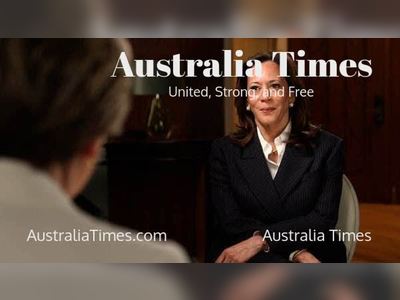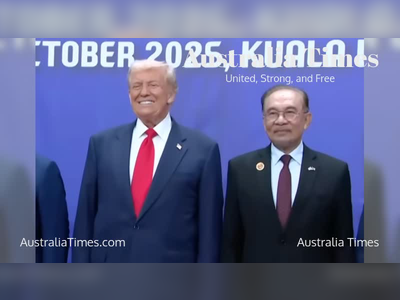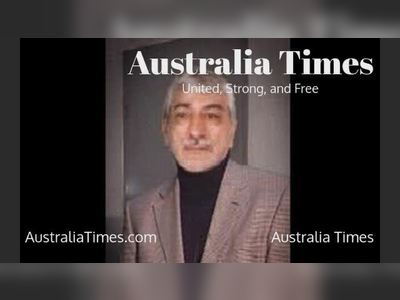Australia Urged to 'Step Up' as US Cuts Global Health Aid, Former CDC Chief Warns
Dr Tom Frieden calls for Australia to fill the vacuum left by U.S. funding rollbacks in international health systems
Australia has been urged to increase its investment in global health in light of significant reductions in U.S. funding to international health programmes.
Former Director of the U.S. Centres for Disease Control and Prevention (CDC), Dr Tom Frieden, said the cuts under the Trump administration could result in “catastrophic and preventable” loss of life if like-minded countries do not intervene.
Dr Frieden, who led the agency until 2017, referenced the U.S. decision to withdraw from the World Health Organization, propose more than a 50 per cent reduction in CDC funding, and cut support to the global vaccine alliance Gavi, stating that these moves undermine decades of progress in combating diseases such as tuberculosis, malaria and HIV. He warned that the erosion of global health systems not only threatens vulnerable countries but also weakens the broader international defence against pandemics.
The Australian government has reacted by stressing its commitment to global health, particularly through support for the World Health Organization’s strategic realignment and the upcoming establishment of an Australian CDC in January.
A spokesperson for the Department of Health, Disability and Ageing said the new centre will bring together experts across government and work with international counterparts, strengthening Australia’s technical capacity in disease surveillance and response.
Prof Allen Cheng, Director of Infectious Diseases at Monash Health, noted that while Australia’s health system is robust, the dependence of global partners on U.S. institutions presents a weak link.
He urged the Australian CDC to build trust and credibility in the face of growing disinformation and declining confidence in overseas health advice.
Dr Frieden emphasised that resilient health systems rest on primary health care, robust laboratory and data-sharing capability, and strong surveillance networks.
“Health is not a zero-sum game.
When one country is healthy, it strengthens its neighbours and the world.
If the U.S. retreats, others must step up to prevent catastrophic and preventable loss of life,” he said.
As the global health architecture adjusts to major funding changes, Australia’s policy response and institutional investment may prove pivotal in safeguarding regional and global disease resilience.
Former Director of the U.S. Centres for Disease Control and Prevention (CDC), Dr Tom Frieden, said the cuts under the Trump administration could result in “catastrophic and preventable” loss of life if like-minded countries do not intervene.
Dr Frieden, who led the agency until 2017, referenced the U.S. decision to withdraw from the World Health Organization, propose more than a 50 per cent reduction in CDC funding, and cut support to the global vaccine alliance Gavi, stating that these moves undermine decades of progress in combating diseases such as tuberculosis, malaria and HIV. He warned that the erosion of global health systems not only threatens vulnerable countries but also weakens the broader international defence against pandemics.
The Australian government has reacted by stressing its commitment to global health, particularly through support for the World Health Organization’s strategic realignment and the upcoming establishment of an Australian CDC in January.
A spokesperson for the Department of Health, Disability and Ageing said the new centre will bring together experts across government and work with international counterparts, strengthening Australia’s technical capacity in disease surveillance and response.
Prof Allen Cheng, Director of Infectious Diseases at Monash Health, noted that while Australia’s health system is robust, the dependence of global partners on U.S. institutions presents a weak link.
He urged the Australian CDC to build trust and credibility in the face of growing disinformation and declining confidence in overseas health advice.
Dr Frieden emphasised that resilient health systems rest on primary health care, robust laboratory and data-sharing capability, and strong surveillance networks.
“Health is not a zero-sum game.
When one country is healthy, it strengthens its neighbours and the world.
If the U.S. retreats, others must step up to prevent catastrophic and preventable loss of life,” he said.
As the global health architecture adjusts to major funding changes, Australia’s policy response and institutional investment may prove pivotal in safeguarding regional and global disease resilience.
AI Disclaimer: An advanced artificial intelligence (AI) system generated the content of this page on its own. This innovative technology conducts extensive research from a variety of reliable sources, performs rigorous fact-checking and verification, cleans up and balances biased or manipulated content, and presents a minimal factual summary that is just enough yet essential for you to function as an informed and educated citizen. Please keep in mind, however, that this system is an evolving technology, and as a result, the article may contain accidental inaccuracies or errors. We urge you to help us improve our site by reporting any inaccuracies you find using the "Contact Us" link at the bottom of this page. Your helpful feedback helps us improve our system and deliver more precise content. When you find an article of interest here, please look for the full and extensive coverage of this topic in traditional news sources, as they are written by professional journalists that we try to support, not replace. We appreciate your understanding and assistance.










